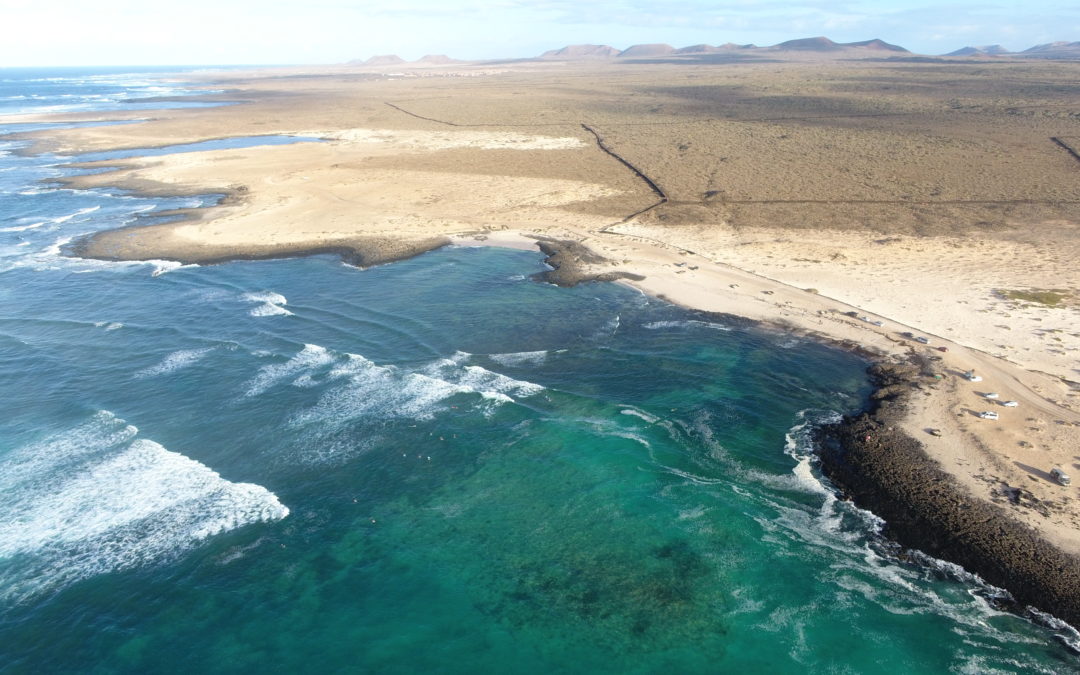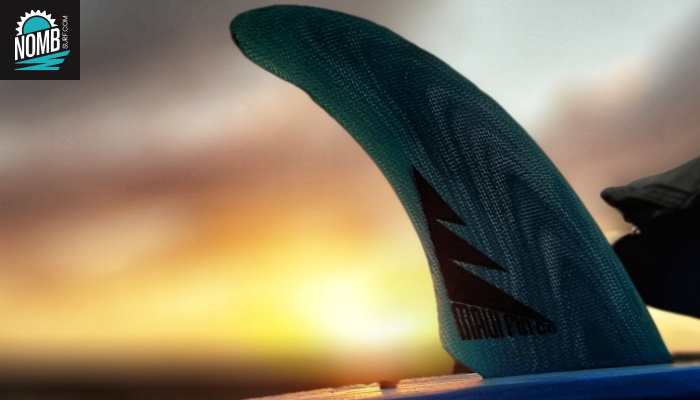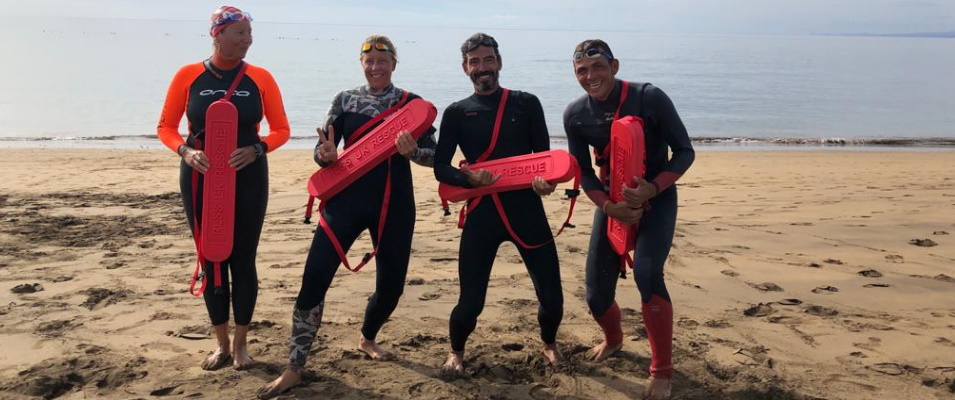
Becoming a lifeguard – a week in Lanzarote
As surfcoaches we want our students to improve, and have a great time in the ocean. However, we also have the responsibility for our student´s safety in the water. This his means knowing the local conditions, their skill levels and knowing how to react in case of an emergency.
Being a surfinstructor also means being a lifesaver. When completing the surfinstructor course, general first aid is included, and most licences even request an additional lifesaving course. However, I always felt like this was not enough.
Stepping up from lifesaver to lifeguard
I have been surfcoaching fulltime for 7 years by now. During those years I have seen some pretty nasty accidents, I have rescued an uncountable number of people, I have patched cuts and calmed down panic attacks. Experience is knowledge, and even though I would have preferred not having been part of all those situations, they have also given me confidence to be able to help.
Normal lifesaving licences expire every two years. And it really makes sense to renew the licence regularly, practise scenarios, and get up to date with new procedures. So when my surfcoach lifesaving licence expired I found myself wondering: am I really prepared to save someone´s life? Would I know how to react correctly in a more serious situation?
The decision to become a lifeguard
Being honest with myself, I could not answer these questions with a 100% convincing yes. This led to my decision to step up my game and sign up for a proper lifeguarding course. Yeees, the whole Baywatch type of thing, can you imagine? As travelling is a bit tricky at the moment I checked on the other nearby islands and luckily found Paul from Lanzarote Lifeguarding and Lawaflow Surfschool.
After a few uncessful attempts of me hopping over to Lanzarote, I finally managed to sign up for the RSLL Vocational beach lifeguard course in October. Little did I know that I was signing up for a swimming course as well. Turns out that Paul also runs the Swim Lanzarote school, training eager people for triathlons and even the Iron Man competition. This is me during the beach practice.
Swimming, running, rescue techniques and loads of knowledge
So here I was, ready to improve my skills and my expertise. In order to pass the course I had to pass a swim test: 400m swim in the open ocean in less than 8 minutes. That scared the hell out of me. I am a very trained paddler but I couldn´t really remember the last time I swam 400m. Paul and Phil, the other course presenter, eased my doubts right from the beginning, ensuring me that I would be able to pass the test by the end of the week. Cheered on by their hopes I simply started swimming, and imagine how surprised I was when I passed the test straight away.
The week was saved. Or so I thought. What I totally underestimated was the amount of information my brain had to process, and remember. I felt really stupid having thought before that I knew anything about lifeguarding. The truth is that I was lacking skills and confidence in several areas.
But Paul and Phil reinsured me that I was doing great, and finally I stopped doubting myself. We swam, we ran on the beach, we practiced rescue techniques – repeating thing over and over again. After each morning on the beach I was physically and mentally exhausted. But after a short lunch break I felt ready to take on the afternoon theory sessions.
Repetitions are the key to a quick reaction
After all the practice in the water and on the beach it was now time to learn. Soon my brain was filled with accident scenarios, ocean theory, regulations, communication methods and different CPR procedures.
Cardiopulmonary resuscitation (CPR) is an emergency procedure that combines chest compressions often with artificial ventilation in an effort to manually preserve intact brain function until further measures are taken to restore spontaneous blood circulation and breathing in a person who is in cardiac arrest. (Wikipedia)
We practiced CPR in various scenarios: an unconscious adult, a suspected drowned adult, a child and an infant. CPR consists of chest compressions and breath, in a 30:2 ratio. However, if you are dealing with a child, infant or suspected drowning casulty you start off with 5 breaths first, then 30 compressions, then back to 2 breaths, 30 compressions, 2 breaths and so on.
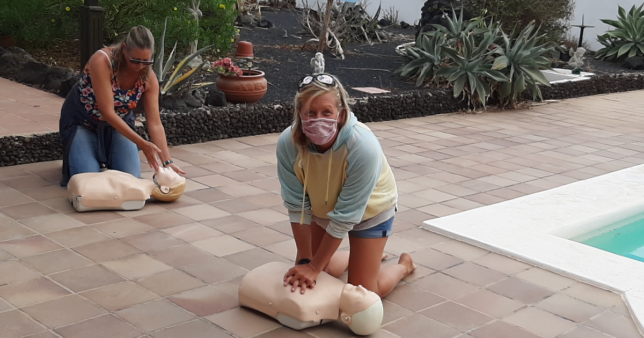
I have learned CPR before (and I really hope that I never have to use it) but only now, after 5 intense days of repeated practice, I sort of feel confident enough to say that I could react quickly in a serious situation.
Being a qualified lifeguard makes me a better surfcoach
I am thrilled to say that in the end I passed the course, and am now a RLSS qualified vocational beach lifeguard. I have passed the swim test, the fitness test required to validate my licence here in Spain, the rescue techniques test, a written test and an interview test. And my brain is still buzzing with all the new things I have learned.
I love my job as a surfcoach, and assume the responsibility that comes with it. Being a trained lifeguard makes me feel more confident, knowing how to react in emergency situations, assuring the safety of my students, and even the other surfers around me.
I can only call on other surfers to get motivated and also train to become a lifeguard. This way we can create a safe surfing environment, in times when our beloved sport has turned into something like a mass movement 😉 Why not combine your next holiday with a lifesaver course? I can highly recommend Paul & Phil, great humans, highly professional and always good for a laugh.
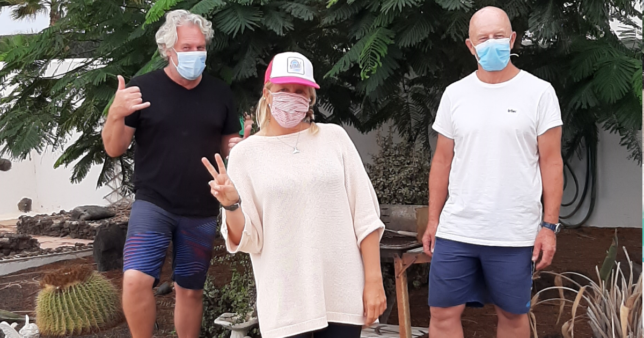
Thanks guys for a real fun week, all your support and everything you tought me. Catch you soon for some waves and cool projects together.
Sea you soon!!

